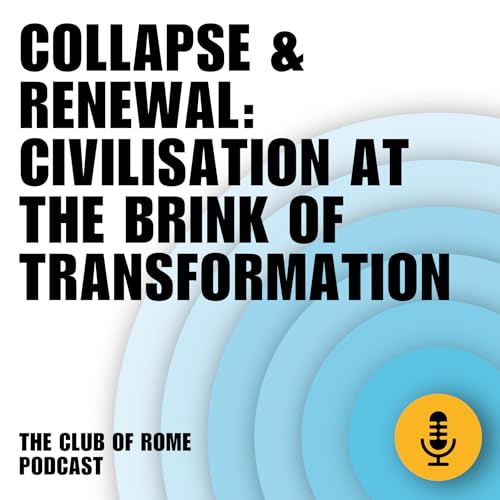Music, art, and media have always played powerful roles in social movements that created long-lasting societal change. Will the 21st century be any different? How can we inspire a generation to liberate their future actively? In this episode, Nolita Mvunelo is joined by Sishii, an award-winning singer and activist. Together, they dive into the role of art and music in inspiring young Africans to make a difference in the face of adversity. They question why more artists do not address the climate change crisis and other systemic issues while reflecting on the importance of art in raising awareness, inspiring action, and shaping the future. Watch the video: Full Transcript: Nolita: We kind of need a revolution. Welcome to a special edition of The Club of Rome podcast exploring how we can work together across generations, across continents, across contexts, to mobilize action for a regenerative future. I am Nolita Mvnelo, Programme Manager of the Club of Rome, and in this episode, I had a conversation with someone I am proud to call a friend, Sishii. Actor, R&B, singer heard by millions, based in South Africa and changing the world. Against a backdrop of all the concerns we are facing, we discussed the role of art and music in inspiring young Africans to make a difference in the face of adversity. Thank you so much for joining me and joining me in my world of big picture and asking big questions and asking about the future of humanity and society, but also the future of us as Africans. Other people won't know this, but you're partly responsible for why we're doing this limited series, because you're the one who said, "Yo, you we always have these interesting conversations. Why don't we, why don't you sit down and try to have more conversations with more interesting people?" So I'm very grateful for you taking the time to chat with me today. Sishii: Thank you for having me and thanks for doing it. Nolita: I have, like, a handful of questions that also, again, are very reminiscent of some of the conversations we've had. The first one being, we always share a sense of, like, these concerns about the future of South Africa, the future of Africa, and our place in making a difference in those concerns. Sishii: Yeah. I mean, a lot of the time the conversation is about leadership. It's about what we as young people are doing currently for, you know, our country, our continent, our world, and what we're trying to do to make things better for this world. And I'd say that the concern, it's like, there's so many facets of life, obviously, there's the economy, there's politics. I'm an artist, so there's the future of the arts. And we kind of cover a lot of those subjects, you know, in the conversations that we have, but I think in all of those subjects, the primary concern is what we're doing to make things better, because we recognize that something is, something's definitely wrong. Nolita: When you say what we're doing, do you feel like there is enough opportunity to do things? Sishii: I think a lot of our conversation is about how we feel like those who do have the opportunity to do something aren't actually doing anything, and those who don't have the opportunity to do anything are not even really considering what possible changes there could be. And in terms of what I'm doing, I'm just doing what I love, which is being an artist and inspiring other artists. Inspiring, you know, young people, according to them, also, this is not, I'm not saying I'm an inspiration. I have been called one on a few occasions. Yeah, inspiring African artists to pursue their dreams of being artists and inspiring Africans in my little corner of the world, which is South Africa, to just believe in themselves, to believe that they can come from circumstances that aren't necessarily great and make a change in the world and try and do positive in the world. So yeah, I think that's what I'm currently up to, and I hope I'm doing well at it. Nolita: Do you think you have a sense of what does it take to inspire someone who feels that they don't have enough opportunity to rise to leadership or to make like, like groundbreaking, world changing art. Sishii: It's weird, but like, as an artist, it's when your intention is to inspire, and you create from wanting a certain reaction, right from certain people, it doesn't really work as well as when you're being true to yourself, it doesn't work as well as telling your story in the best way you know how with whatever it is that you have and so what I've learned is this road for me, has just been about storytelling and using whatever resources I can find, gather people. This is a people's business, yeah, just essentially using all of that to tell my story. And in the process, I found that there are people who find that inspiring. Because if you have gone through hardship and you're talking about it, I'm pretty sure there's someone out there, at least one, I mean, there's billions...
Voir plus
Voir moins
 29 min
29 min 26 min
26 min Jun 27 202531 min
Jun 27 202531 min 30 min
30 min 26 min
26 min 36 min
36 min 23 min
23 min 33 min
33 min
